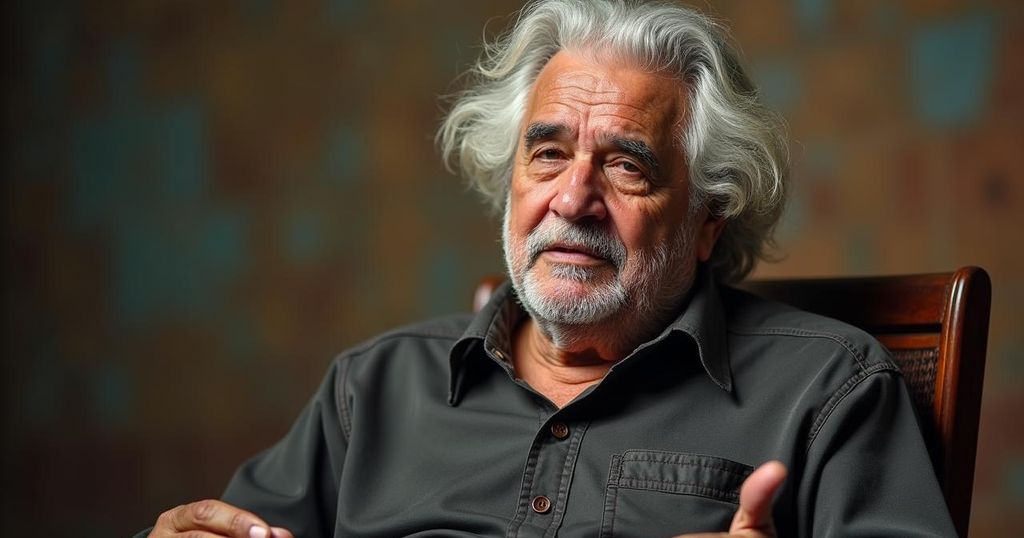Pepe Mujica Critiques the Indefensibility of Nicaragua and Venezuela
Pepe Mujica criticized the governments of Nicaragua and Venezuela, deeming them indefensible due to their failure to genuinely embrace democratic principles. He highlighted the farcical nature of their governance and expressed skepticism about the effectiveness of socialism, suggesting that capitalism will inevitably confront its contradictions.
Former Uruguayan President José “Pepe” Mujica has openly criticized the regimes of Daniel Ortega in Nicaragua and Nicolas Maduro in Venezuela, declaring them “indefensible” in a recent interview with El Observador. He emphasized that while these leaders pretend to practice democracy, they lack the fortitude to acknowledge their actual alignment with dictatorial principles. Mujica characterized their approach as a political decision, stating that their manipulation of democratic processes has become a farce, particularly evident in current situations where their authoritative stances do not hold up under scrutiny. He also discussed Brazilian President Luiz Inácio Lula da Silva’s attempts to mediate between these regimes, observing that Lula has avoided taking a hard stance on the electoral processes in Venezuela. Mujica described Lula’s efforts as driven by pragmatism, considering Brazil’s geographical proximity to Venezuela and the complexities of diplomatic relations. Furthermore, Mujica expressed his disillusionment with socialism, admitting that previous attempts to implement it have failed significantly. He ultimately conveyed a belief in the resilience of humankind and opined that capitalism would either evolve or ultimately collapse due to its inherent contradictions.
The article explores Pepe Mujica’s critique of the current political climates in Nicaragua and Venezuela, focusing on the perceived authoritarianism masked as democracy by their respective leaders. Mujica, noted for his unique political philosophies and former leadership in Uruguay, addresses the international relations between Brazil and these regimes, particularly under the leadership of President Lula. The context involves a broader discourse on socialism, capitalism, and the lessons learned from past political experiments, reflecting Mujica’s insights grounded in his experiences and observations.
In conclusion, Pepe Mujica’s remarks underscore the complexities and contradictions within the political systems of Nicaragua and Venezuela. His critiques highlight a significant concern regarding the superficial practice of democracy in authoritarian settings. Moreover, Mujica’s reflections on socialism and capitalism point to a broader philosophical inquiry into the future of economic systems and governance in relation to human nature. His insights offer a poignant critique of both past and present political ideologies in Latin America.
Original Source: havanatimes.org




Post Comment